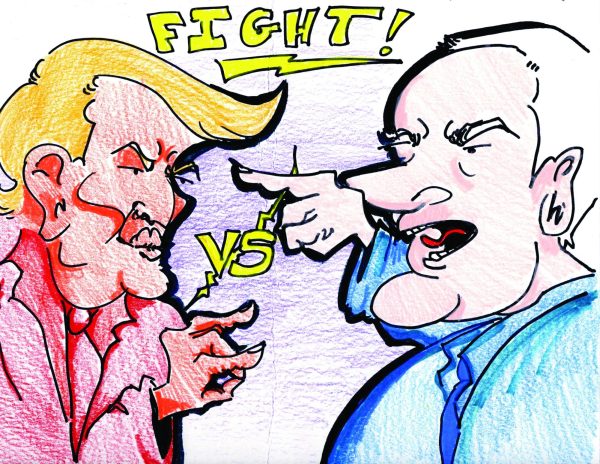What’s In A Name?
March 22, 2019
Have you ever wondered why you mom or sister might’ve changed their last name after their marriage? Did the thought of why this tradition started ever cross your mind? Well, honestly speaking it’s hard for me to understand the logic behind why a recently married woman would change her name (except in a few, very exceptional circumstances). In my opinion, following traditions it not blameworthy, but the obligatory action of a women changing their name is.
I strongly believe that if a woman is willing to change her last name and she is not under any obligation, then this tradition can be considered somewhat reasonable. However, it is still very stunning to me as to why this tradition started at all. Throughout my life, I have considered my first and last name as a part of my identity and by changing my last name I don’t want to lose my individuality. Even though I am uncertain about what my decision will be in the future, I am definite right now that I will not change my last name.
Another aspect that also intrigues me is the topic of prefixes. Since my childhood, I have always wondered why is it distinguishable by a woman’s last name whether she is married or not. Meanwhile, the husband is always unaffected after marriage in terms of prefix and last name, because neither does his last name nor does his prefix of “Mr.” change.The expectation that women adopt their husband’s surname at marriage is fundamentally rooted in patriarchal marital traditions.
It is a possibility that some new brides might not even know that there is a history behind the changing of a last name.The modern expectation that women adopt their husband’s surname at marriage began in the 19th-century doctrine of coverture in English common law (Reid 2018). Under this doctrine, women lacked an independent legal identity apart from their spouse.Under the concept of coverture, which literally means “covered by,” women had no independent legal identity apart from their spouse. Actually, this “coverage” began upon the birth of a female baby – who was given her father’s surname – and could only change upon the marriage of that female, at which point her name was automatically changed to that of her new husband. Historically, this represents the transfer of women’s subservience from father to husband, the subjugation of women’s identities to those of men. Despite the progressive society that we live in today where the power of feminism is increasing rapidly, these traditions might be a reason for the inequalities that still exist between men and women.
My mom is one of those women that had changed her last name after her marriage, and like many others I had also believed that this is the way of life. Furthermore, studies have also shown that for people whose mothers changed their names after marrying, it can be hard to convince them that there won’t be challenges to having a partner with a different surname. Therefore, it is not also the husband’s fault that he might’ve expected his wife to change her last name after their marriage.
Nevertheless, regardless of what the reason of a woman changing her last name might be, it is important to understand that a women shouldn’t be mandated to change her last name as a sign of subordination. On the contrary, it has also been asserted by some people that a woman changing her last name is not a sign of inferiority but a sign of love. As I mentioned before, if I man was raised in a house while his mother or relatives have changed their last name then he presumes that will be the same for him. Yet, it is highly possible that he is not knowledgeable of the history behind the tradition and would just want his wife to change her last name because that is how his upbringing has been. Additionally, he might not have an intention of lower the status of his wife and showcase his dominance.
Regardless, the tradition of a woman changing her last name has been a tradition for over two centuries and as the society progresses it is possibility that this tradition will fade out. Yet, it also sensible to think that this tradition may remain the same over generations. Although, there are various perspectives about a woman changing her last name, it is important to recognize that this action shouldn’t be coerced.







